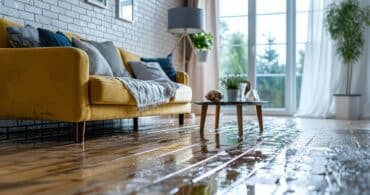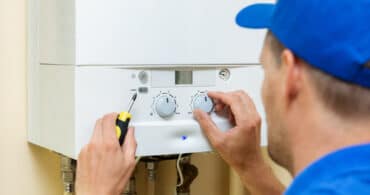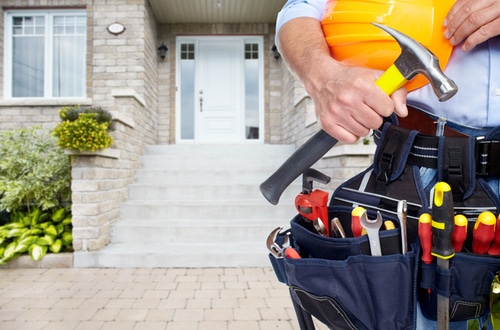What are the Repair and Maintenance Obligations of a Landlord?
In the private rented sector, landlords are generally expected to keep any property let to tenants well-maintained and in a good state of home repair. By the same token, tenants must ensure they act in a ‘tenant-like manner’, not causing damage to the property other than anything that can be classed as ‘fair wear and tear’.
In the private rented sector, landlords are generally expected to keep any property let to tenants well-maintained and in a good state of home repair. By the same token, tenants must ensure they act in a ‘tenant-like manner’, not causing damage to the property other than anything that can be classed as ‘fair wear and tear’.
Under Section 11 of the Landlord and Tenant Act 1985, every residential tenancy of less than seven years carries the implied term that landlords must undertake a number of home repair related responsibilities. Landlords must:
- Keep the structure and exterior of the property in good repair – this includes drains, gutters and external pipes
- Ensure that installations for the supply of water, gas, electricity and sanitation measures are kept in good repair and working order – this includes basins, sinks, baths pipes and drains; gas appliances, pipes, flues and ventilation, and electrical wiring
- Make sure the installations used for heating and hot water are kept in good repair and working order
Landlords must also take responsibility for putting right any damage caused by attempting home repairs, and will also usually be accountable for repairing common areas, such as staircases in blocks of flats.
In addition, for tenancies granted from 1988 onwards, landlords have the extra responsibility to ensure the structure and exterior of any parts of a building that are connected to the property are kept in good repair.
Health and safety responsibilities
As well as their responsibilities under the Landlord and Tenant Act, landlords in England must also ensure privately rented property is fit for human habitation, in other words, safe, healthy and free from anything that could cause serious harm.
This is covered by the Homes (Fitness for Habitation) Act 2018, a law that allows tenants to take their landlords to court if they fail to provide them with a safe, secure, warm and dry place to live, forcing them to carry out home repairs and rectify and health and safety issues.
Issues such as damp and mould, pests and vermin, ventilation, natural light and the layout of the property, amongst other factors, come under this legislation.
Gas safety responsibilities
Under the Gas Safety (Installation and Use) Regulations 1998, landlords must:
- Ensure all gas equipment supplied is safely installed and maintained by a Gas Safe registered engineer
- Arrange an annual gas safety check on every gas appliance and flue by a Gas Safe registered engineer
- Provide tenants with a copy of the gas safety check record ahead of them moving in, or within 28 days of the check
Electrical safety responsibilities
The Electrical Safety Standards in the Private Rented Sector (England) Regulations 2020 make it law for residential landlords in England to maintain their properties to the specified standards, and to provide evidence that they are compliant.
The Regulations apply to all new residential tenancies in England from 1 July 2020, and will apply to existing tenancies from 1 April 2021.
Under the legislation, landlords have to make certain that their privately rented properties meet the 18th Edition of the Wiring Regulations (British Standard 7671). They must also be able to produce an Electrical Installation Condition Report (EICR) to prove that all fixed electrical appliances have been inspected and tested as safe by a qualified and competent person. Inspections must be conducted every five years as a minimum.
Fire safety
Landlords have a number of pieces of legislation to follow in terms of fire safety. These include the Regulatory Reform (Fire Safety) Order 2005 England and Wales, The Housing Act 2004 and the Smoke and Carbon Monoxide Alarm (England) Regulations 2015.
In summary, landlords must:
- Follow all the relevant safety regulations
- Provide a smoke alarm on each storey of the property used as living accommodation, and a carbon monoxide detector in any room with a solid fuel burning appliance
- Ensure clear access to escape routes at all times
- Make certain any furniture and furnishings supplied are fire safe
- Provide fire alarms, fire blankets and fire extinguishers if the property is a house in multiple occupation (HMO)
Timescales for home repair and maintenance and maintenance tasks
Landlords are required to undertake repairs within a ‘reasonable timescale’. This will depend on how serious the issue is.
The current applicable regulations must be followed in terms of gas and electrical safety testing, and the required timescales for those.
Do property managers pay for home repairs?
Whilst landlords with a property management contract can hand over all responsibility for repairs and maintenance, they will still be billed for any work that needs to be undertaken.
Tenant home repair responsibilities
Tenants have certain responsibilities regarding home repairs. Rented property must be kept in a ‘tenant-like’ manner. This means tenants must:
- Keep the property reasonably clean
- Take reasonable care to maintain fixtures, fittings and appliances
- Organise safety checks on their own electrical appliances
- Maintain gardens or outside areas in a reasonable state
- Carry out minor maintenance, for example changing light bulbs and smoke alarm batteries
- Repair any appliances or furniture they own, and take responsibility for any damage they or their visitors cause
Tenants are not required to return a property in a better condition than when they moved in. They must report any maintenance or home repair issues without delay however, and allow access to the property at reasonable times for the purpose of inspection and repair, although they are entitled to a minimum of 24 hours’ notice.
Would you like to hand over all your home repair responsibilities?
There is an incredible amount to deal with as a landlord, not least home repairs. So why not hand over to a property management service, but one that offers a major added advantage?
The homes2let guaranteed rent scheme secures rental payments, even during vacant periods, and takes all the hassle of property management off your shoulders too.
Why not get in touch with our expert team to discover how we can make your life as a landlord that bit easier?
Related Insights

Understanding the Basics of Charging for Tenant Damage
Understanding the difference between wear and tear and actual damage is key to determining fair charges. By following the guidelines outlined in this article, you can confidently navigate the process of handling tenant damage and maintain a successful rental property business.

Landlord Advice on Moving Out Self-Isolating Tenants
The government has recently made it clear as to how landlords and letting agents should deal with the issue of self-isolating tenants who are due to move out of a property. Junior Housing Minister Eddie Hughes has said that accommodation providers are ‘strongly urged’ to be flexible when it comes to extending tenancies and delaying moving tenants out if they are isolating due to COVID-19.

Boiler Breakdown Cover: A Guide for Landlords
One of the most costly and time consuming issues for any landlord has to be dealing with boiler callouts. One way of avoiding surprise costs and all the hassle associated with boiler repairs is to take out landlord boiler breakdown cover. Here’s how it works, what it includes, what it doesn’t include, and what to consider when arranging cover.







